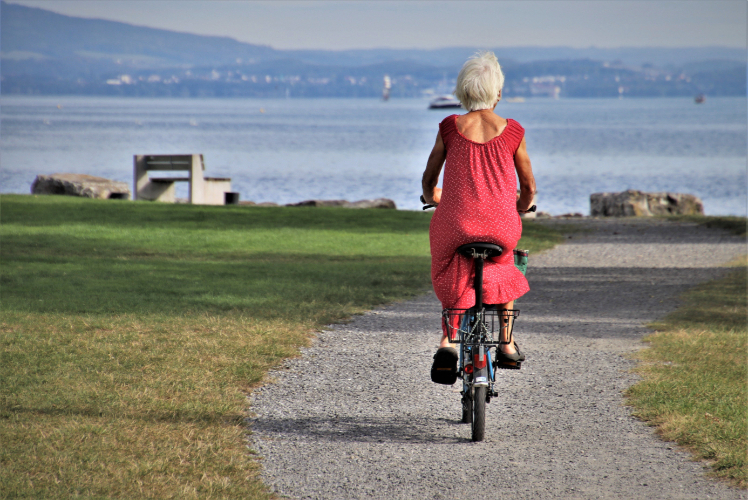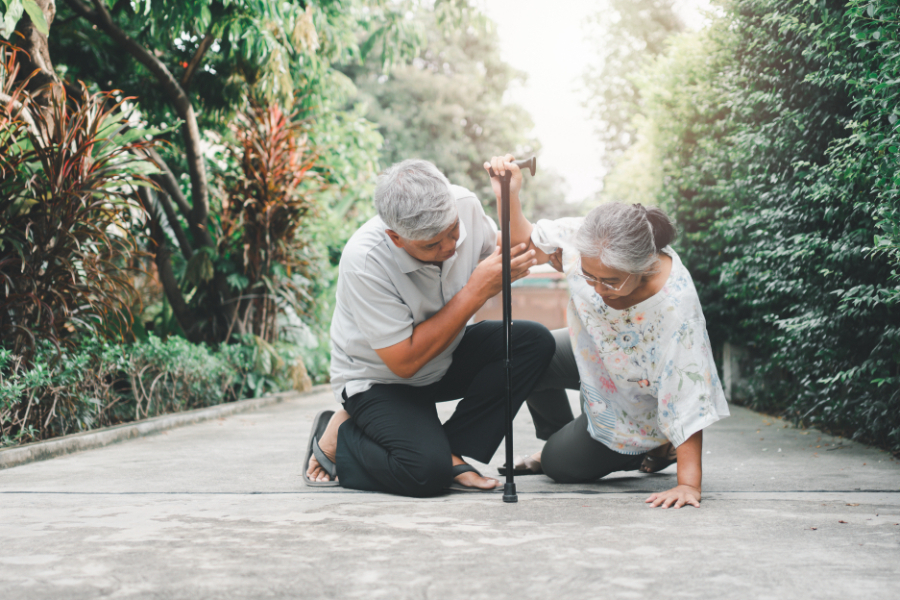Are you interested in methods for preventing falls at home? We look at falls prevention and ways to avoid accidents around the home of elderly and vulnerable adults.
Falls Prevention
Performing simple exercises to boost muscle strength and balance and make simple modifications to your home are easy and effective ways to reduce your risk of falling. For those who have suffered a fall in the past and may have had their confidence knocked in the process, making practical changes can help you overcome your fear.
Older people who live independently at home may feel hesitant to seek help from their GP or other healthcare professionals, either because they want to hold on to their independence or feel that their concerns about falling will not be taken seriously.
But those with experience of caring for older adults understand how significant and hazardous falls at home can be. All healthcare professionals take falls seriously and how they can impact an older person's health.
If you have suffered a fall and it affects your mobility or health in any way, you should discuss this with your GP. Your doctor may evaluate your risk of falling by conducting a standard balance test and refer you to the appropriate local care services. They will also be able to arrange an assessment of your home to determine how much you are at risk of a fall.
Tips to Prevent Falling at Home
Falls are the number one source of injury for older adults, resulting in bruises, wrist and hip fractures, severe brain injuries and even death. Aside from the physical consequences of a fall, many older people can have such a fear of falling that they avoid any activity that could lead to one.
This further reduces their mobility and independence when living alone. The irony of falling is that the most common hazards that lead to falls are found in the home - where you are supposed to feel safe and comfortable. This is why fall prevention tips mainly focus on preventing falls at home. Here are a few of ours that will help you avoid falls and make your home safer.
01
Clean up clutter
One of the easiest ways to prevent falls in the home is to keep things nice and tidy. Removing any tripping hazards is a significant first step to take.
02
Repair or remove tripping hazards
Taking the time to thoroughly check your home for any tripping hazards, such as unsecured rugs or slippery or uneven floors, and repairing or removing these hazards is another great way to prevent falls.
03
Install grab bars and handrails
These pieces of safety equipment are essential for older adults to help them navigate stairs and help them when toileting or bathing.
04
Avoid wearing loose clothing
While you should be comfortable in your own home, wearing properly fitting clothes that do not trail on the floor is another tip for avoiding falls.
05
Light it right
Poor lighting also means you will be more likely to fall as an older adult. Installing brighter bulbs and night lights can help older people to navigate their homes more safely at night. The best places to add additional lighting are stairways and bathrooms - areas where the majority of falls occur.
06
Wear shoes
Again, while you want to be comfortable when at home, it is also crucial that you make it as safe as possible for yourself. This includes wearing shoes at all times. If that doesn't sound too appealing, you can also purchase socks with additional rubber on the soles to help improve grip and stability.
05
Make it non-slip
Tiled floors, most commonly found in bathrooms, kitchens and porches, can become dangerously slippy when wet. Our top tip then is to install non-slip mats on surfaces like these to help prevent falls.
06
Live on one level
Even with the installation of grab rails or bannisters, stairs can still pose a significant falling hazard. Therefore, it is suggested that older people at an increased risk of falling try to live on just one level. If this is not possible, we suggest limiting the number of trips you make upstairs.
07
Move more carefully
Many falls suffered by older adults are a consequence of standing or sitting too quickly. Therefore, it is suggested that older people take their time when moving around your home to ensure that they can do so safely.
08
Sight Tests
If you believe that your vision is poor, even when wearing glasses, and therefore increases your risk of falling, you should arrange an eye test. While many vision issues have no cure, their effects can be managed or treated via surgery, such as cataracts surgery.

09
Strength and balance training
Regularly performing strength and balance training can help improve these elements of your physiology and help to reduce your risk of falls.
This training can be done in various ways, through basic activities such as walking, dancing, swimming and specialist programmes. You may even be able to find such programmes for older adults in local community centres or gyms.
Your GP or occupational therapist can also recommend particular exercises for you to do in the comfort of your own home.
Having specific exercises specifically tailored to your personal needs is the best way to benefit from them. Having a programme created and monitored by a trained professional will allow you to reap the full benefits of these exercises.
A popular activity that can significantly improve your balance and strength is Tha Chi. This Chinese martial art helps you to develop your coordination, balance, and mobility. Compared to other martial arts, Thai Chi differs because there is no physical contact between the participants and is the perfect activity for older adults.
10
Medication review
For those with long-term medical conditions, your doctor or GP should review the medication you are being prescribed at least once a year. This is to ensure that your medicines are still appropriate for you. These reviews are particularly important if you take more than four types of medication per day.
GPs can also prescribe you alternate medication or suggest lower doses if the side effects affect your mobility and increase your risk of a fall.
You may even be able to stop taking certain medications if their effects are too severe. If you have not had your medication reviewed in over a year, it would be best to talk with your GP to arrange one. You should also contact your GP if you feel that your medication puts you at greater risk of falling.

11
Home hazard assessment
If you are concerned about your or your loved ones home and how hazardous it regards fall risks, you can request that a local authority conduct a home hazard assessment.
This assessment will look at both the hazards inherent in the building and how you or the occupant uses and interacts with that environment.
During one of these assessments, a qualified healthcare professional experienced in fall prevention measures will visit your or your loved one's home to determine any risk factors. They will then offer you practical advice and recommendations on how to make the house safer.
The one area of the home that presents the most significant fall risk is the bathroom. Older adults can benefit from having handrails installed to help them when toileting or bathing. The installation of a personal alarm may also be recommended so that you or your loved one can call for help and emergency aid should a fall occur.
12
Avoiding alcohol
Alcohol has a notorious effect on people's coordination and can exacerbate the side effects of particular types of medication. These effects can significantly increase the risk of falling for older adults, and by avoiding alcohol, they can further reduce the risk of falling.
Drinking excessively can also lead to osteoporosis, which increases the risk of serious injury should you suffer a fall.
If you have questions about how to prevent falls at home, we hope this information has been useful to you.
We offer specialist home care services and live-in care for vulnerable adults throughout London. Get in contact today if you have a loved one that would benefit from care at home.

